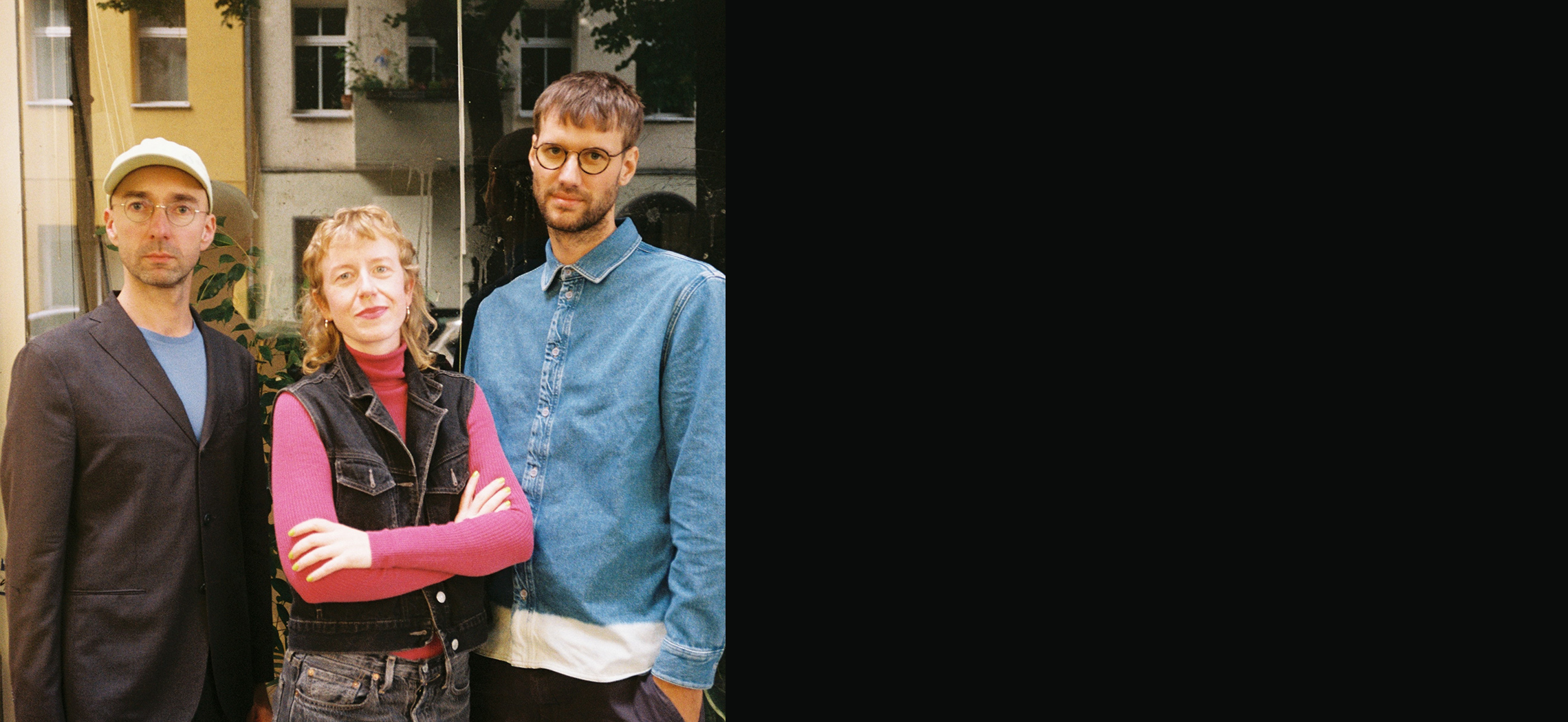A portrait of producer Schuldenberg Films
Schuldenberg Films © Maja GoethelNow approaching the sixth anniversary of being launched by Kristof Gerega, Fabian Altenried and Sophie Ahrens at the end of 2016, Schuldenberg Films has since carved a unique niche for itself in the German film landscape as a producer of genre-bending projects with a critical and political approach. Based in Berlin and Bavaria’s Bad Endorf, the company was in effect a successor to the Schuldenberg Foundation collective in London which had brought artists from different artistic disciplines and backgrounds together to work on projects.
Indeed, this diversity of backgrounds is also reflected in the three co-founders’ own biographies: while Altenried studied Fine Arts at the Düsseldorf Art Academy, Gerega had formal training as an actor, and Ahrens studied Applied Media Economics in Hamburg and Berlin before graduating with an M.A. in Film & TV Production from the Film University Konrad Wolf in Babelsberg.
“We complement one another very well with our different backgrounds,” Altenried says, “and this means that we are also aware of other production processes and are thus able to find creative solutions for each project.”
Initially, Altenried and Gerega were focusing at Schuldenberg Films on producing projects that they were also directing. However, Altenried and Ahrens now concentrate on producing films by other filmmakers, although Gerega has continued working in the producer-director role with his latest project, the documentary GENERATION EUROMAIDAN.
The long-term observation, which Gerega has been working on for the past six years about three activists struggling to bring about reform in Ukraine, will be aired by ZDF in its Das kleine Fernsehspiel slot at the end of November. “Most of the films we produce have a strong queer-feminist perspective, which is something very important to me,” Ahrens explains. “Other projects that we are drawn to are ones dealing with environmental changes and the fear and hope in our current society.”
“A strong characteristic is that our films are power critical and dare to have a very specific artistic language and point of view. And we often work with writer-directors who have a background in art and therefore a different approach to cinema.”
A case in point is visual artist Ann Oren’s fiction feature debut PIAFFE which had its world premiere in the International Competition of this year’s Locarno Film Festival and has since been invited to screen in San Sebastian’s Zabaltegi-Tabakaleracompetition as well as festivals in Hamburg, London, Chicago, among others. “PIAFFE isn’t a typical German film, not what one would normally expect from German cinema, but perhaps it’s a chance to bring something new to German filmmaking,” Gerega suggests.
The same goes for the company’s first fiction feature production NEUBAU which saw theatre director Johannes Maria Schmit making his film directorial debut from a screenplay by lead actor Tucké Royale. That film premiered at the 2020 Max Ophüls Prize Film Festival where it was named Best Fiction Feature Film and won the award for the Most Socially Relevant Film and received the German Films Critics Association’s award for Best Debut Feature in 2021.
The company has plenty of interesting projects on the boil – either from within the “family” of filmmakers they have worked with over the past six years or by way of recommendations and contacts from their international network of artists and filmmakers. At the same time, Schuldenberg Films would not consider compromising its role as a bridge builder and supporter of projects that don’t conform to the usual norm. “We will grow as a company and evolve, but this will always be organic,” Altenried declares, pointing out the Schuldenberg Films’ current project slate sees a clear shift in focus towards European co-production.
The company recently wrapped shooting on Henrika Kull’s third feature film SÜDSEE, a drama set in the mountains between Tel Aviv and Jerusalem, and is now developing Austrian director Kerstin Neuwirth’s debut feature ABITANTI as a German-Italian co-production, as well as Iranian writer-director Amina Maher’s hybrid experimental film I LOOK LIKE MY MOTHER, which already has co-producers from the UK, Switzerland and Portugal onboard.
Martin Blaney

